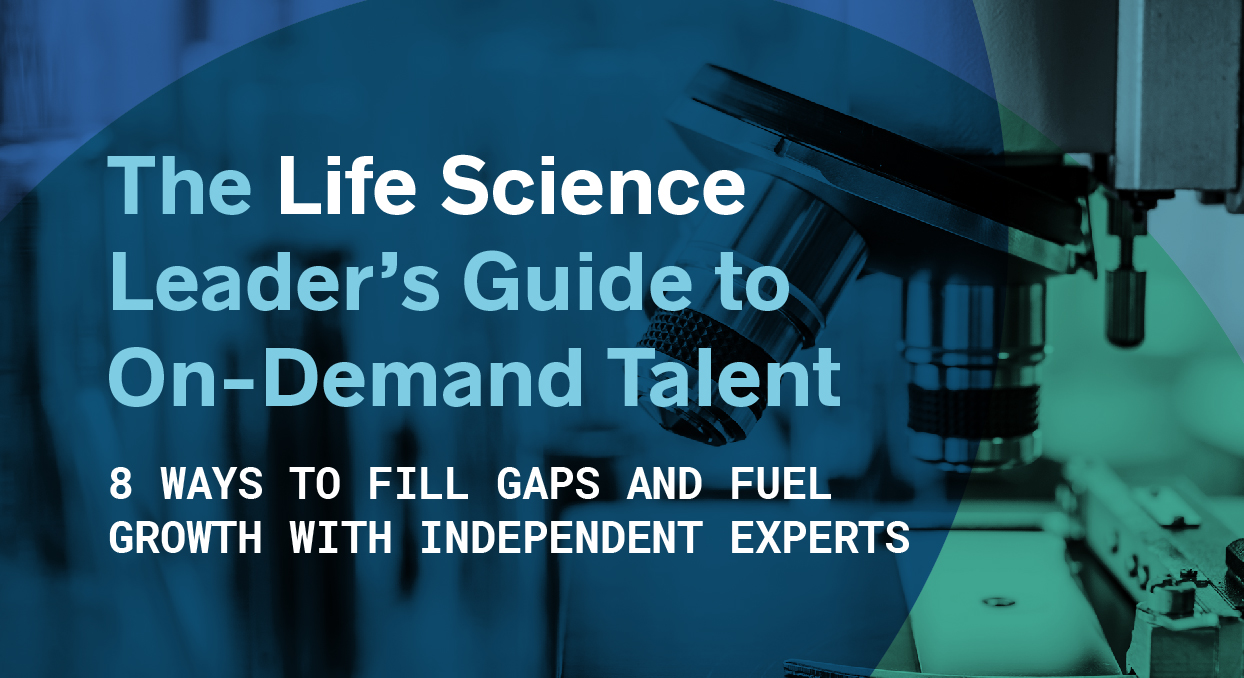
There’s a general sense of a lack of control that accompanies inflationary pressures and looming threats of recession. As costs rise and consumers become increasingly price-sensitive, budgets shrink and financial strategies narrow, thus fostering the ideal conditions for reactive decision-making—all at a time when measured responses are most needed.
If there’s one thing we’ve learned from the pandemic, however, it’s that information can be a tremendous asset in identifying both risks and opportunities for a business. In fact, data-driven insights have become a key differentiator between flourishing and floundering in a post-pandemic economy, but it can be a significant challenge to find the right resources to harness those insights effectively.
Better data informs better decisions
By leveraging critical information in times of flux, organizations are able to make better decisions quickly. This enhanced agility helps them mitigate the effects of economic factors that lie beyond their control. As Source Global Research reports in its recent Market Update, “With rising fuel and other costs threatening individuals’ discretionary purchases, [businesses] are investing to ensure they have better, more up-to-date information on consumer behaviour and on being able to forecast demand more accurately, both at the overall level and for specific products and services.”
The fact that automating processes increases efficiency and reduces cost—the few areas an organization can attempt to control amidst economic uncertainty—isn’t news for most. Neither is leveraging technology to anticipate and respond to rising consumer needs. These realizations happened long before the pandemic, and many organizations were already shoring up in-house resources to support a tech-forward strategy when the first stay-at-home mandates rolled out.
During the pandemic, investment in technology surged in response to the sudden acceleration of consumer demand for digital everything. Early pivots were almost certainly reactionary, and in the absence of solid data analytics, many were a gamble. Now, as consumer behavior shifts in response to the downstream ripples of supply chain fragility, global conflict, and wage inflation, there’s even less margin for error.
That’s likely why Source found that, “54 percent of [respondents] say that their data & analytics functions will be one of the three areas within their organisations where they’ll be making the greatest investment over the course of the next 18 months.” Technology alone can’t steady the ship if there isn’t solid data anchoring the strategy behind it.
"Across all industries, there is no shortage of data," according to Ryan Bulkoski, global head of the Data, Analytics & Artificial Intelligence Practice at Heidrick & Struggles. "Companies need to determine what data is relevant (both proprietary and third party) and how best to derive insights from it. We find many companies are distracted by the hype around artificial intelligence when instead, they should put their focus on developing a sound data strategy. Establishing a strong foundation will enable the organization to effectively generate insights across all business functions and set up an environment attractive to data scientists."
Higher and higher hiring challenges
Though data science is a critical function that organizations clearly need, in-house skills gaps and the broader talent shortage are making it tough to establish data and analytics teams within their own walls. Making matters worse: Organizations still struggle to articulate what they want or expect to achieve with their data.
This is largely because data science is a relatively new discipline for many organizations—with nearly three quarters (74%) of data, analytics, and artificial intelligence leaders saying that their role has existed in their company for fewer than five years, according to Heidrick & Struggles. This unfamiliarity, coupled with sizable data and analytics salaries, can create a speed bump that’s difficult to overcome.
Then, of course, there’s the dearth of full-time talent to contend with. These types of skills are already in short supply, and the competition to access them is expected to grow fiercer. Job postings in the data science domain are expected to grow by 71% over the next five years, according to IT Career Finder. No surprise then that the US Bureau of Labor Statistics now ranks data scientists and statisticians as two of the top 10 fastest growing occupations.
Fortunately, there’s more than one way to build a data science team. As Lu Wang—co-founder and CEO of boutique data science consultancy Komodo Tech—writes, there are three primary options for “investing in the path to data science”:
- “Hire an analytics lead, a data analyst, and a data engineer, in that order.
- Contract an independent data scientist with the experience to assume multiple roles, then hire employees to fill in the rest of the team.
- Outsource the work to a boutique data science firm that can supply all the roles at once.”
The first approach might not seem to address the aforementioned issues of labor shortages and payroll budgets, and the third might seem to be so hands-off that it gives CEOs pause. But not everything is what it seems. Any of these can be made viable under current circumstances by applying the central tenet of the second: securing support from freelance data scientists.
Working from the outside in
Indeed, demand for independent data and analytics consultants and AI consulting is growing daily. As Wang points out, “Though [data science’s] promise spans many industries, it’s not yet so core to most businesses that the early phases can’t be outsourced.”
BTG’s 2022 Skills Index found that, “requests for artificial intelligence and machine learning skills are up 500% as companies seek to tap big data for more informed decision-making, automate processes for efficiency and cost reduction, and leverage technology to anticipate and respond to rising consumer needs.”
BTG also noted a 120% increase in requests for Data Visualization experts who can implement dashboards in platforms such as Power BI and Tableau and offer real-time insights to executive leadership on everything from sales and performance indicators to workforce headcount, costs, capabilities, and energy usage across facilities.
Whether bringing in full teams of data science consultants or supplementing internal teams with a freelance data analyst (or three), there are both immediate and long-term benefits to be had. Headcount remains flat while the outsourced team provides support until ROI can justify building an internal team. Meanwhile, the business is gaining experience with how a properly structured and managed data science team functions.
The smart way to deploy freelance data scientists
Independent talent are especially well-suited to meet leading companies’ needs for data and analytics experts. Their ability to ramp up or down as needed also offers greater flexibility—in a far more cost-effective manner—than hiring permanent employees or a big firm for a temporary need.
“Independent consultants can often cut through politics and red tape more rapidly than people on the inside of an organization,” said Mohammad Ghassemi, an independent data science expert with over a decade of experience. “Another advantage of coming into an organization as a contractor is that it forces the organization to clearly articulate both their expectations and an associated timeline under which those expectations are to be met. ”
By providing on-demand access to high-end independent data scientists, analytics consultants, and AI consultants, BTG has helped industry leaders—ranging from a multi-billion dollar grocer to an F500 biotech company—build and maintain governance structures and analytical frameworks to ensure their data platforms serve the current and future needs of all users.
Examples include:
AI and Machine Learning: Leading Internal Teams on Proof of Concept
In addition to offering a wealth of expertise, BTG independent consultants are also skilled leaders who can jump in to support internal teams. When the CIO of a global insurance company needed a data science expert to conduct a proof-of-concept for several initiatives, BTG provided a seasoned data science and AI expert with both executive leadership and big firm consulting experience.
The consultant led the cross-functional internal team in building out a sustainable data science capability within the organization, leveraging data and AI and machine learning to identify risk, develop an Agile Scrum team model, and improve efficiency efforts for acquisition marketing programs.
See more AI and machine learning case studies
Data Science: Executing a More Realistic Roadmap
It’s not uncommon for organizations to bring in big consulting firms to create strategic roadmaps; once the firm exits, however, reality sets in. This was the case with a Bay Area tech company that had engaged a consulting firm to develop a big data strategy roadmap. Soon after, the SVP of Strategy realized his budget was not sufficient to cover all recommendations—but internal politics made it difficult to determine what to cut.
Business Talent Group delivered a single, senior independent consultant who knew the industry and could offer a swift, neutral translation and coordinate with the Program Management Office to manage, lead, organize, and monitor the implementation. The client avoided an additional seven-figure consulting spend—and kept the execution on track and on time.
See more data science case studies
Analytics: Refining data operations to serve new needs
Even organizations that specialize in data and analytics can find themselves in need of independent consultant expertise. When a multinational life science data and analytics company needed an experienced, hands-on data and analytics consultant to work with its UK-based team, BTG provided a data strategy and management executive and former Big 3 consultant who could provide high-level strategy insight as well as on-the-ground execution support.
Working directly with the COO and CEO, the consultant carried out a capability assessment of the current team’s strengths and weaknesses, identified risks, and developed a roadmap to support the new strategy. He then reviewed ongoing data governance for further improvement, conducted competitive benchmarking, and identified and recommended opportunities for automation and optimization—ultimately ensuring the company’s data operations were qualitative, robust, and scalable.
See more analytics case studies
Business Intelligence: Interim support for critical roles
One of the most valuable advantages of independent talent is that they can be brought in on an as-needed basis. In one case, the Global Portfolio Management team of an F100 consumer healthcare company was in the midst of developing a portfolio reporting framework when a key team member stepped away on parental leave. Needing continued analytical support for the project, the director reached out to BTG for an interim, six-month engagement.
BTG deployed a former director of IT Shared Services and Business Intelligence, who was able to build and maintain actionable and insightful analysis, reports, and dashboards to enable transparent prioritization and optimization of the end-to-end project portfolio—including innovation, life cycle management, cost improvement, and compliance projects.
Immediate support for immediate needs
As the global economy struggles to regain its balance, companies need to be prepared to weather continued headwinds. Data science and analytics have proven to be an organization’s most valuable tools in this regard. As Source puts it, “The data & analytics market is likely to remain strong while economic uncertainty remains high and consumer behaviour remains unpredictable—which probably means for quite a long time.”
Whether augmenting teams or providing support for from-scratch data strategies, BTG offers on-demand access to high-end independent data scientists, data translators, and data analysts with cutting-edge skills in a wide range of specialties—from data strategy, visualization, and monetization to AI and machine learning, advanced analytics, and business intelligence. There’s more than one way to build a data science team, and by bringing in independent, experienced talent, you can ensure you’re building it sustainably and cost-effectively, too.
Ready to do more with your data? Explore a project today
GET THE SKILLS YOU NEED
Thousands of independent consultants, subject matter experts, project managers, and interim executives are ready to help address your biggest business opportunities.
About the Author
More Content by Emily Slayton

















